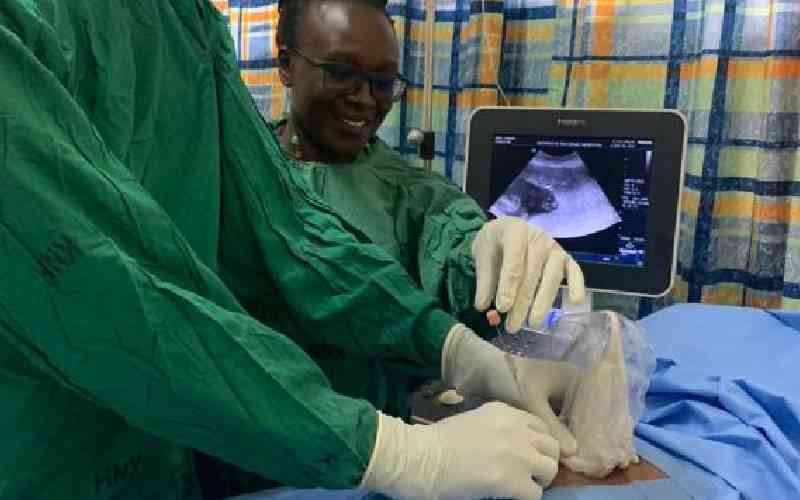×
The Standard e-Paper
Smart Minds Choose Us

A team of doctors including Rosa Chemwey, Flavia Ogutu, Ikol Adung'o and Kunjira Murayi at the Kenyatta National Hospital has achieved a significant breakthrough by performing an Intrauterine Fetal Transfusion on an unborn baby.
This complex procedure involves delicately injecting red blood cells from a donor into the foetus while still in the mother's womb.